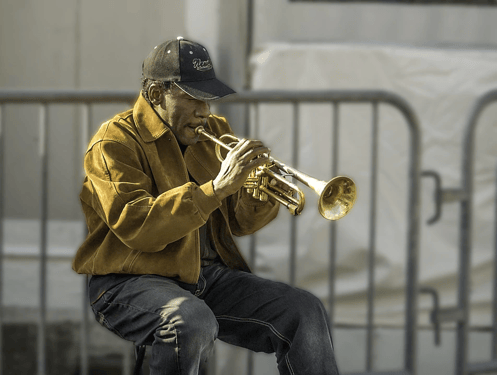Topics: Sleep Apnea, Insomnia, cpap
As a good rule of thumb, your body weight is inversely proportional to your sleep quality. And if you are suffering from obstructive sleep apnea, the weight of your neck can contribute to blocking your airway while you sleep. In fact, a study by the Journal of the American Medical Association confirms that a 10% decrease in weight predicted a 26% decrease in a patient’s apnea-hypopnea index (AHI). Meaning, that a reduction in your overall weight through exercise can lead to reduction of your sleep apnea symptoms.
But how do you get into the habit of it? By putting a rigorous exercise plan for yourself? Maybe. Maybe not.
How Does Exercise affect the Sleep
Here are some ways in which exercise can affects Sleep:
- Promotes Better Sleep Quality
- Regulates Sleep pattern
- Decrease Stress and Anxiety
- Controls Mood Swings
- Help control Weight
- Reduces Insomnia Symptoms
How to Start Exercise for a Good Sleep at Night?
It may actually be more useful to proceed one step at a time, and be consistent towards your exercise plan, rather than making a rigorous one and not sticking to it. So here are some tips to ensure you bring exercise into your sleep routine:
- Set a realistic weight goal – It’s no use to create a goal that you give up on even before trying. Be realistic and start with something small, like losing half a kilogram every week.
- Ask for support – Having a supportive partner, friends or family can make it easier for you to exercise and lose weight simultaneously. Make sure you ask for their support.
- Start with easy exercise routines – Always start small. Start with exercises you can easily do, and get into the habit first. Taking a brisk walk a few times a day is a good way to start, and then you can build on it to include stretching and resistance training.
- Make exercise fun – One reason people often fall back on the routine is because they do not enjoy doing it. If you’re only doing things you don’t like, it’s too easy to go off track. So find something that interests you - like playing a sport, riding a bike, dancing or even taking your dog to the park. Try new things until you find the right fit.
- Turn exercise into a lifestyle – Making exercise a part of your lifestyle means that you not only do the bigger activities, but also make small changes to be more healthy. What about taking the stairs instead of the elevator, or going for a walk during lunch? Any movement or activity can contribute towards your weight loss.
Now that you are aware of the correlation between exercise and sleep, and how does exercise affect your sleep, the next step is to understand how exactly it can help improve your sleep apnea.
How Exercise Can Improve Your Sleep Apnea?
The less you wear the mask, the harder it will be to get used to wearing it. So ensure that you use the device for several weeks or more to see if the mask and pressure settings you were prescribed still work for you. Exercise and sleep apnea are related, as established by several studies. One of the key ones is the 2010 Chest study which notes that, “Weight loss has been accompanied by improvement in characteristics related not only to obesity but to OSA as well, suggesting that weight loss might be a cornerstone of the treatment of both conditions.”
Certain kinds of exercises, particularly those that are for your mouth and facial muscles tend to increase the airflow through your windpipe, and may improve your sleep.
A recent study of the impact of myofunctional therapy (therapy involving movements that target the facial muscles and tongue to strengthen the oropharynx) on sleep apnea showed a 50% decrease in AHI in elder patients, and 62% decrease among younger patients.
So here’s a look at some of the easy and fun myofunctional exercising tips for sleep apnea improvement:
- Using a musical instrument – Playing musical instruments have some amazing benefits for an apnea prone patient. Brass and woodwind instruments, such as trumpets and clarinets, can help open up your windpipe and train throat muscles to stay limber.

- Singing – Singing, not humming, can open and strengthen your throat muscles and also reduce your snoring. It has other health benefits as well, like boosting your immune system and lowering your stress levels.
- Tongue exercises – Practicing a series of tongue exercises can help train your tongue stay in place and not fall back to block your airway as you sleep, thus improving your sleep apnea condition. Few such exercises include:
- Placing the tip of your tongue to the roof of your mouth for five seconds, and repeating this 10 times
- Sticking your tongue out and trying to touch your nose for 10 seconds, again repeating this 10 times
- Pushing your tongue out all the way to the right for 10 seconds and repeating this 10 times, and then doing the same thing on the left side as well
So as we can see, exercises can be both fun and useful, but they are still just one part of the equation of maintaining a healthy sleep lifestyle. The other major part being a healthy diet intake. However, these are essentially prevention tactics, and useful if consistently done over a period of time.
On the other hand, a more effective way to help you regain a good night’s sleep is by following CPAP therapy. You can take a 15-day CPAP trial to evaluate if this is an option for you, before committing to the therapy long term.




